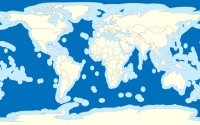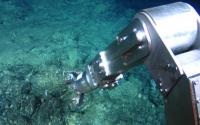Recent News

The author argues that U.S. Freedom of Navigation Operations (FONOPs) in East Asia are increasingly provocative and prone to accidents and they could lead to "a long, drawn-out crisis that, even if it stops short of war, would prove highly disruptive to U.S. efforts to cooperate with China on areas of great import."
[ More ]
Government pledges to reach net zero emissions of greenhouse gases by the middle of this century will demand huge quantities of battery metals, some of which will be coming from polymetallic nodules on the deep seabed.
[ More ]
The author argues that one way the Biden Administration could meet its goal of shoring up the supply of critical rare earth metals is by signing the Law of the Sea convention, opening up the deep seabed for commerical exploitation.
[ More ]
The author argues that "[f]rom almost any perspective, seabed mining of metals is better for the environment, social justice issues and economics."
[ More ]
Chinese researchers say they have identified a number of “strategically important” rare earth mineral deposits as part of a decade-long survey of the world’s sea floors.
[ More ]
The Japanese government plans to commercialize the mining of cobalt and other rare metals that are found on the seabed around Japan’s easternmost point of Minamitorishima island.
[ More ]
Norway’s oil and gas reserves have made it one of the world’s wealthiest countries but its dreams for deep-sea discovery now center on something different. This time, Oslo is looking for a leading role in mining copper, zinc and other metals found on the seabed and in hot demand in green technologies.
[ More ]
Private mining firms and arms companies are exerting a hidden and unhealthy influence on the fate of the deep-sea bed, according to a new report highlighting the threats facing the world’s biggest intact ecosystem.
[ More ]
Mining agencies promise to minimize harm to ocean ecosystems. Scientists say we can’t predict its full extent — or how to reverse it.
[ More ]
China has nominated a candidate for a judge’s position in the International Tribunal for the Law of the Sea, a court that hears and settles maritime dispute. The U.S. opposed the idea and suggested that China shouldn’t be given a seat because it disregards international maritime law in the South China Sea.
[ More ]